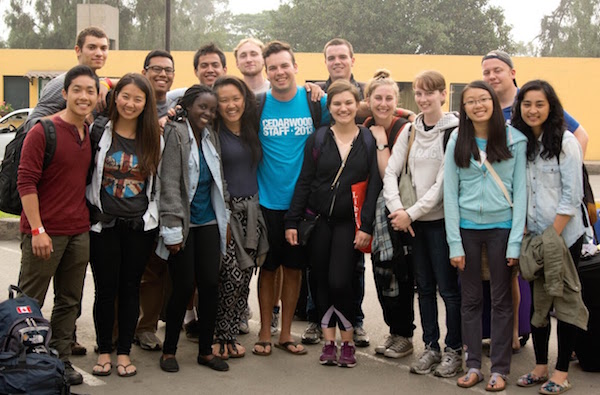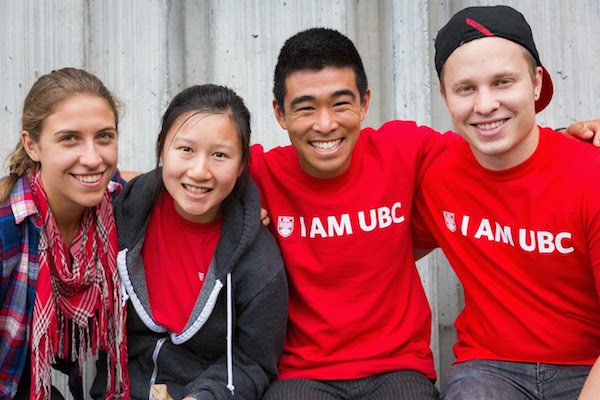- Four years later I get to shower you with wisdom
- Let’s start with the 5 TO DON’Ts:
- 1. DON’T hesitate to repeat the vision.
- 2. DON’T be afraid to change your course.
- 3. DON’T neglect the local church.
- 4. DON’T do it alone!
- 5. DON’T be discouraged by a lack of visible fruit.
- Let’s now move on to the 5 to-DO’s:
- 1. DO abide by the 80/20 Rule.
- 2. DO become a self-feeder.
- 3. DO invest in the right people!
- 4. DO attend conferences and mission trips.
- 5. DO trust God for results.
- My final words of advice as I graduate
by Tim Cooke
It was my second year of university. Power to Change had launched a catalytic (student-led) ministry on my campus, UBC Okanagan (UBCO), the year previously.
I had signed up knowing partially what I was getting myself into, but was discovering more and more how unqualified I was to lead a campus ministry.
To make things harder, my two fellow leaders had resigned after the first year (both with good reason, by the way – no hard feelings). I remember journaling and praying, determined to see things grow, but with no staff on my campus, very few people involved, a busy engineering schedule, I had one big question in my mind: What am I doing?
Four years later I get to shower you with wisdom
Four years later, P2C-Students at UBCO is still figuring things out, but a lot has changed since my early days as a young, naïve leader. In my time leading here at UBCO, along with my six-month internship launching catalytic ministries in Melbourne, Australia, I’ve learned a few things that I wish I knew when I started!
When time travel gets invented (hopefully by us electrical engineers), these are the five “to-DOs” and five “to-DON’Ts” that I will tell my first-year self, but since I can’t do that, I will tell you instead. Get ready.

Let’s start with the 5 TO DON’Ts:
1. DON’T hesitate to repeat the vision.
The vision of P2C-Students, and ultimately God’s vision throughout the Bible, is what will inspire students to get involved, help others discover Jesus, and grow as multiplying disciples.
Don’t be afraid to communicate over and over why we do what we do. During the times that I wanted to quit, God’s vision for saving people on my campus was what challenged me to continue and reminded me of the eternal impact of the work that we do.
2. DON’T be afraid to change your course.
Keep your plans flexible!
As a small ministry, your agility is your strength. Don’t be afraid to do a bit of trial-and-error and steer in new directions! At UBCO, we have run a lot of different programs to try to see what would work on the campus.
We’ve run coffee and Timbit-based discussions, movie nights, a video contest, a BBQ, hikes, a slushie table, and every possible way to spin a small group. Many of these programs haven’t worked very well, or have worked semi-successfully! But through process of elimination we are learning how to use our activities to further our vision.
3. DON’T neglect the local church.
P2C isn’t a church, and wasn’t designed to be!
Find a local church that prioritizes teaching the Bible, and allow it to be a launching pad for your ministry. Invite other P2C students to join you, and ask members of the church to pray for you and financially support your mission trips.
This is important for any P2C ministry, but particularly in catalytic where you don’t have staff on campus to disciple you.
4. DON’T do it alone!
The Biblical model for missions is always a team of people. If Paul and Peter needed help, so do you!
If you are currently the only one, pray that God would send labourers to your campus. Hunt to find more people by doing lots of networking and vision-casting.
God answered my prayers in second year by working in the hearts of my friends Tess and Ileri. He gave them a desire to make disciples in the university context and raised them up as leaders on our campus.
5. DON’T be discouraged by a lack of visible fruit.
Pioneering takes time, and at the beginning you are mostly preparing the soil and planting seeds. Our hope and prayer at UBCO is that we would be an example of the parable of the mustard seed, that although we have humble beginnings, we would one day be a large tree that bears much fruit.
While on my internship in Australia, my team and I spent much of our time coaching new student leaders to start ministries on their campuses. We shared our failures as much as our successes. We wanted to help students avoid the “TO DON’Ts” that I had spent so much time doing, and thereby give them a head start. It seems to have worked. Today these ministries are growing much quicker than UBCO did.
Let’s now move on to the 5 to-DO’s:

1. DO abide by the 80/20 Rule.
80% of the results come from 20% of the work.
In my second year, once my co-leaders had stepped down, I found myself trying to do everything I could to keep the ministry propagating. Due to a lack of prioritization, I was taking time away from the essentials (gathering the group together for prayer and evangelism) to focus on non-essentials (running administratively heavy events, designing posters, and scheduling too many one-on-one meetings). This resulted in me doing many things poorly and eventually burning out because I was busy, but not productive!
I learned this lesson the hard way, and this has helped me learn to better organize my time around my top priorities.
2. DO become a self-feeder.
Don’t expect to be spoon-fed ideas, training, and Biblical understanding. Go after it yourself!
Read all the articles on the P2C resources page, call staff and ask them questions, and use Summit and P2C PLUS strategically. The internet is another amazing resource. For answers to tough spiritual questions visit GotQuestions.Org, Desiring God, or The Gospel Coalition.
3. DO invest in the right people!
Find others who are teachable and aligned to P2C’s vision. Don’t spend too much time trying to convince people who don’t want to be involved.
Spend the majority of your time with those who want to share their faith and are hungry to learn.
4. DO attend conferences and mission trips.
As a leader of a small ministry, it was hugely encouraging to meet so many other students at the fall retreat, Summit, and the P2C PLUS conference and to experience the scale of P2C-Students.
My first mission trip to Peru also gave me a much greater understanding of P2C’s vision. Additionally, these are critical opportunities for catalytic students to spend time with staff and receive training.
5. DO trust God for results.
You aren’t the saviour of your university, Jesus is.
We can’t change hearts, this is his specialty. Remember the definition of successful evangelism: taking the initiative to share Jesus in the power of the Holy Spirit and leaving the results to God. What we CAN do is be faithful to his call and be willing to obey him at any cost.

My final words of advice as I graduate
I’ve now completed my fifth and final year of university. When I look back to my first year self, I realize that there were two things I underestimated at the time: the challenge of starting a catalytic ministry, and the amount I would learn and grow from doing so.
Despite this undulation of joys and challenges, I look back on my university years with a sense of satisfaction and confidence in God’s working. As we have taken steps of faith to pray, share the gospel, and make disciples on our campus, God has changed lives through the ministry on our campus, including my own.
If you are a student leader on your university campus, I want to encourage you. I know what you’re doing is not easy. It will challenge and stretch you in ways you don’t expect.
However, I also want to remind you of this: our initiative to share Christ with those around us is never wasted. God will take our meager efforts and multiply them, to his glory. I praise God for how he’s using you on your campus to change the world by helping students discover Jesus.
Therefore, my dear brothers and sisters, stand firm. Let nothing move you. Always give yourselves fully to the work of the Lord, because you know that your labor in the Lord is not in vain. – 1 Corinthians 15:58
"*" indicates required fields
Share this!
About the Author





